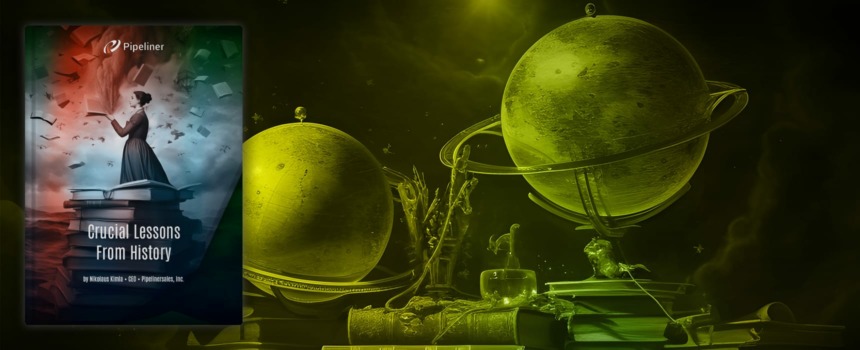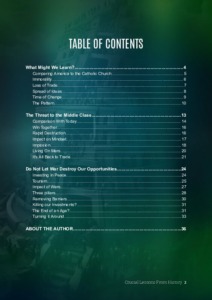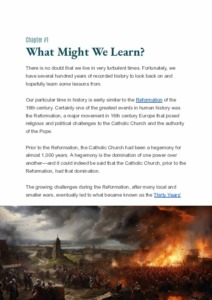What Might We Learn?
There is no doubt that we live in very turbulent times. Fortunately, we have several hundred years of recorded history to look back on and hopefully learn some lessons from.
The Threat to the Middle Class
Let’s now examine how our future actually depends on the sales profession and its impact on society.
Comparison With Today
At Pipeliner, we’ve been very interested in the role of salespeople, simply because salespeople make up a significant portion of the middle class. Keep in mind that half of the working population is in a sales-related situation. The more we shrink the middle class, the more unstable society becomes.
Win Together
At Pipeliner we have created the slogan “Win Together.” This is a very realistic approach to sales, deeply rooted in the anthropology of the Austrian School of Economics.
Impact on Mindset
All of these trends and events have a direct impact on our mindset. Our mindset, of course, has a direct effect on our behavior. As our behavior as either buyers or sellers deteriorates, we move more and more into deception.
Rapid Destruction
There is a big difference between creation and destruction. Many people don’t understand that it takes many years to create a stable business—for example, Pipeliner took over a decade to build.
Impact on Mindset
All of these trends and events have a direct impact on our mindset. Our mindset, of course, has a direct effect on our behavior. As our behavior as either buyers or sellers deteriorates, we move more and more into deception.
Implosion
You have probably heard about the disaster with the Titan submersible on its way to view the Titanic. Although there are speculations and claims, we still don’t know exactly what happened.
Living On Mars
Civilization began with trade. I think we came out of our caves and started to communicate better because we traded. Communication is one of the core principles of growth and prosperity.
It’s All Back to Trade
In the Austrian School of Economics, we say, “We have no anthems. We have no flags, no uniforms, no guns. The only thing we have is a better idea.”
Do Not Let War Destroy Our Opportunities
Let’s now examine the false assumption brought up at the end of the last part: that war can somehow lead to prosperity. Some economists claim that war is somehow profitable—but the fact is that war has never led to prosperity in any form in history.
Investing in Peace
While many countries, including the U.S., have invested heavily in the military, there has been a continuous and substantial investment in peace throughout the world, although it may not be named as such. This contradicts the idea that war is profitable.
Tourism
Why do cities and countries invest in airports? Because people travel. This industry started almost 50 years ago and has boomed like no other with huge investments around the world. We can’t imagine what would happen if this industry were stopped by a crazy 3rd World War—COVID already showed us what it might look like on a smaller scale.
Impact of Wars
We’ve now seen the extraordinary investments that have been made in peace and in sharing our planet. What happens in a time of war, such as the current one in Ukraine?
Removing Barriers
Interestingly, when the government is not involved in the conduct of normal business, it is easy. There are far fewer barriers to trade and consumption.
Killing our Investments?
Billions of dollars have been invested in tourism infrastructures. They were built to last 50 years or more and pay back their investors. What if they don’t survive?
The End of an Age?
In his excellent book The Road to Ruin, author James Rickards discusses the collapse of the Bronze Age around 1200 B.C. This event came with incredible speed, and within 50 years almost every major kingdom had crumbled.
Turning it Around
We can continue on the path we’re on and ruin everything. Or we can take it to the next beautiful level with the incredible technology, including AI and the Internet, available to us today.


































Comments